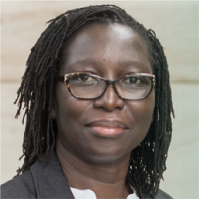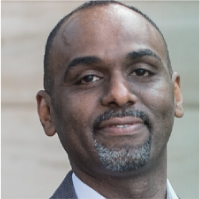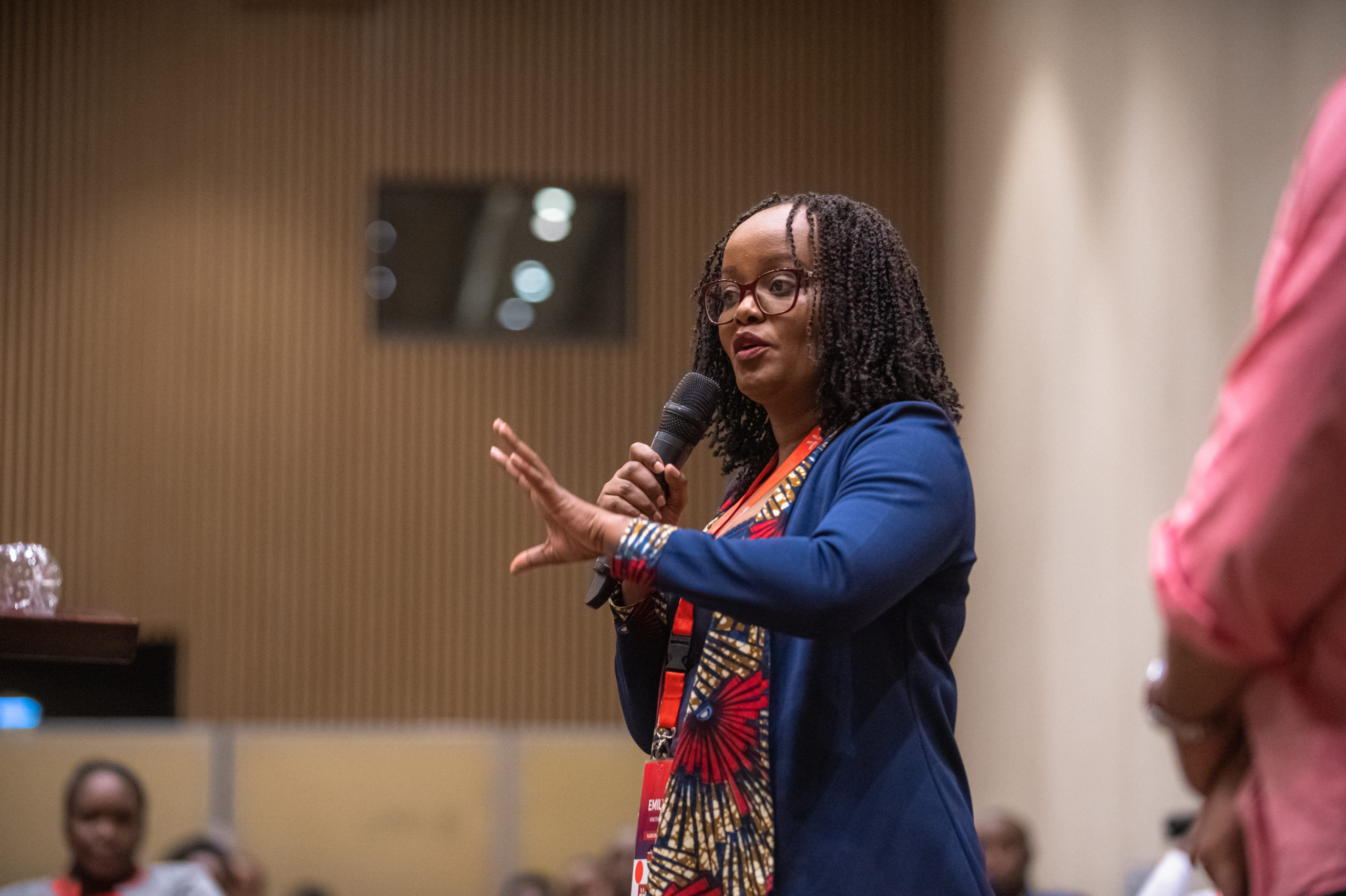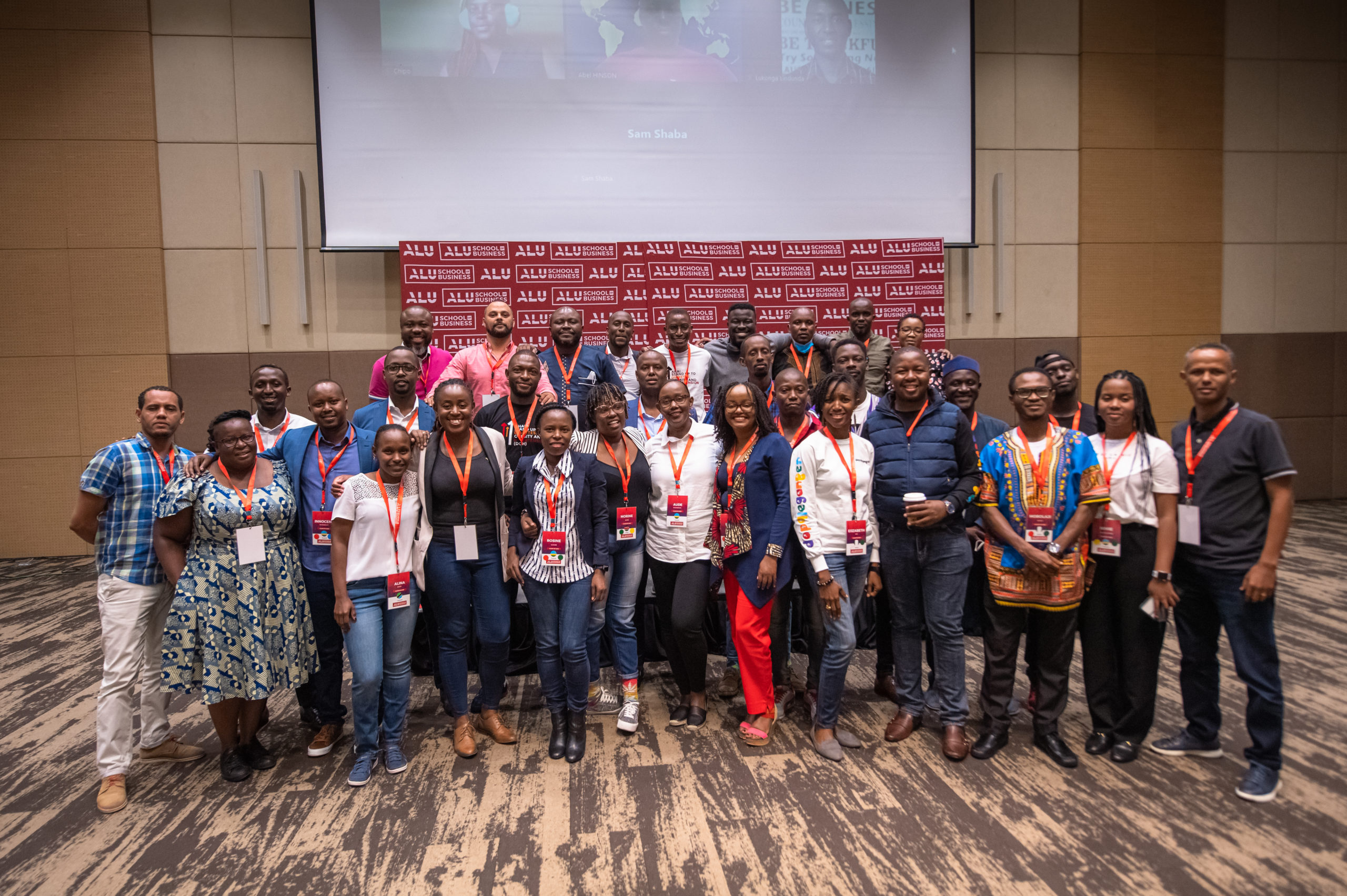Long ago I bet on Africa. Now I’m all in. Let me tell you why.
I spent nearly a decade as a professor at Harvard Business School telling people about Africa from the confines of my wood-paneled office. Explaining the promise of the continent to people who had never been; reassuring people who were nervous to go. Encouraging students with African parents to follow their hearts back to the continent. Trying to tell the story of African business — the innovation and excitement that I see every time I set foot on the continent — to as many people and in as many ways as I could.
But studying it and talking about it from afar did not take me far enough. When you see something really exciting, in which you really believe, there is only so long you want to sit on the sidelines — there is only so long you can allow yourself to be on the sidelines.
I grew up living in Chicago but dreaming about Africa. By the time I was born, people in my family had lived in Africa for decades: my father lived and taught in Ghana in the early 1960s, just after he finished university. His cousin taught for years in Nigeria. My aunt spent decades as a doctor in Nigeria, Uganda, Kenya, and Malawi. I grew up hearing stories about my father’s time in Ghana, where he developed strategies for bargaining in markets, took lorries across West Africa, and learned enough Ewe to sit in the shade and joke with groups of elderly men.
When I was a child, my father’s African friends would come to dinner, unannounced, late in the evening. Our table would suddenly heave with food while everyone talked late into the night about the politics of Ghana, Nigeria, South Africa, and elsewhere. Even as a child I was mesmerized by the combination of optimism, realism, and engagement in those debates — and, more than anything else, with the stories and the laughter, which roared throughout the house. The people sitting around our table believed that they could — that they had to — change the course of the continent, even in some of Africa’s darkest days.
By the time I took my first trip to the continent the Cold War and apartheid were behind us, but a different kind of story about Africa had emerged. Africa was, The Economist declared, the “hopeless continent.” Undeterred, I lived in Uganda for two years and learned enough Luganda and Ateso to bargain in markets and joke with elderly women sitting in the shade. Even at the time, the idea that Africa had “more disaster than hope,” as the magazine had written, seemed wrong on its face.
After earning a Ph.D. studying African markets and institutions at Stanford, I took a job as a professor at Harvard Business School. Even as I talked about Africa to the Western business schools that are hoping to shape the rest of this century, I realized that these were not the schools that were going to create the African century. What comes next is going to have to come from within Africa, not from offices in places like Palo Alto and Boston.
The African Century
Why am I so bullish on the future of Africa? In the long run, demography, institutions, and leadership create the destiny of nations, regions, and the world.
Demography is on Africa’s side.
The continent is young and growing, even as populations in other regions are aging and shrinking. In the past decade, the biggest economies in Africa have grown at more than twice the global average and more than four times faster than the United States. While low commodities prices have recently caused a temporary setback, booming consumer demand and a rising middle classpromise longer-term economic expansion, and these opportunities are reflected in dramatic increases in investment on the continent.
By the middle decades of this century, one in four people in the world will be African, and the continent will have the highest ratio of working age to non-working age people in the world. Youth and market size fuel innovation and private sector development; if the continent can harness this population growth, rather than being overwhelmed by it, then Africans and African business will be a key driver of growth in the 21st century.
Africa’s institutions are on their way.
Between 2014 and 2015, the World Bank reported that nearly one third of all of the business-friendly regulatory reforms in the world were in Africa. The continent still has a long way to go, to be sure, but the trend is encouraging. Today’s leaders in both the public and private sectors can help to pave the way for long-term institutional improvement and economic growth on the continent.
Leadership, particularly in the private sector, will be the way forward.
In spite of recent concerns, the most exciting stories of opportunity in Africa are no longer about commodities exports to other regions, but about production, consumption, and trade within the continent. Economic diversification has buoyed African economies even in the face of a dip in commodities prices, thereby saving the region from the negative growth rates that have plagued some other export-dependent areas. Regional integration has meant that Africans are increasingly trading with other Africans, and firms from the continent are investing elsewhere on it.
These trends have made Africa a hothouse for innovation.
Entrepreneurs, firms, and even governments are developing new technologies, systems, and approaches to reach new markets and create new products for a continent brimming with early adopters. A generation of young, innovative African leaders is looking for ways to leapfrog old constraints and create economies built for the twenty-first century.
The prices of commodities will always move cyclically. In the long term, however, Africa’s relentless ambition for innovation and entrepreneurship — coupled with the energy of its young people and the commitment of its leaders — can win the day.
Leadership for the African Century
Amidst this rapid, innovative change, African organizations often find themselves struggling to find and develop talent that will allow them to build nimble and sustainable ventures; to identify and develop leaders who can contribute to their organizations now and help guide them into the future. While organizations are invariably impressed by the enormous amount of raw talent on the continent, they often describe the difficulties associated with training or identifying individuals who possess the initiative, values, self-awareness, critical thinking skills, and drive to excel in increasingly complex managerial roles. If young leaders are going to build the African century, then we must help to cultivate these young leaders.
An increasingly pan-African market must develop its own class of pan-African business leaders. As firms in Africa do more and more business across borders, their managers must have knowledge about innovations and best practices drawn from many African countries — as well as professional networks that span the continent. They must, moreover, be able to do all of this with a global perspective, understanding not only how global trends will affect African firms and markets, but also how and where their own firms can expand beyond the continent.
How, then, can we develop a generation of African leaders?
Some African business leaders will, of course, be educated abroad, at schools like Stanford and Harvard. Yet no matter how universal we like to imagine business practices are, doing business in Africa is simply not the same as doing business in the West, and the markets on the continent are not adequately represented in the standard Western textbooks or case studies. As a recent report on African business education noted, “Western solutions to the challenges of management and leadership are not, on their own, fit for purpose for modern Africa.” Nor have Western business schools come around, for the most part, to Africa’s long-term promise. My classes at HBS were typically two-thirds American students, one third international students, and only about 2% African — which meant that there were usually only one or two Africans in a class of more than 90 students. Most HBS students study only a handful of cases on Africa amongst hundreds of cases on firms from the United States and other regions.
As long as Western business schools are designed for Western students, the African leaders who are going to transform the continent must, for the most part, come from African schools.
Telling the story of African business
The great business schools of the last century — Harvard, Stanford, Wharton, and others — grew to prominence by providing an analytical mirror for the great businesses of that century. American capitalism and American business education grew in tandem, with each providing key data and insights to the other. Many of the best practices that we think of as universal are the products of this critical collaboration.
Who, then, will hold up a similar mirror to the African Century? It will not, for the most part, be schools in America and Europe. Instead, it will be Africa’s top educational institutions, both new and old. The template for the African Century will be written by people who are on the continent. All day, every day. Analytically, emotionally, and physically.
The top educational institutions across the African continent are now working — and must continue to work — together to train the generation that will define the coming century. Those of us who love the continent, who understand it as a unique, vibrant place all its own, must be the ones to tell the real stories of African business. We must educate an almost endless generation of African talent: the hundreds of millions of young people who will help define this century. We must tell the stories and write the cases that will be used around the world for the next fifty years because they mark the moment when it was clear that the world had changed. The moment the tide turned. The moment when we were able, together, to peer into our shifting global future.
Chimamanda Ngozi Adichie tells us, “Stories matter. Many stories matter. Stories have been used to dispossess and to malign, but stories can also be used to empower and to humanize. Stories can break the dignity of a people, but stories can also repair that broken dignity.”
Stories such as these have never mattered more — Africanstories have never mattered more.
The story of African business, of African leadership, and of the African Century is being written even as I write this, and it is far from having a foregone conclusion. The success of the coming decades depends on the decisions that leaders, educators, and young people on the continent make now.
We, today, have the chance to help create the African Century. I have embraced the risk and promise of this opportunity and joined a new African business school, the African Leadership University School of Business (ALUSB), where I am committed to telling the world the story of African business and helping to train the next generation of African leaders. There is no more important work to be done than helping to educate a continent. I am confident that there is no greater way to influence what has the potential to be one of the most important transformations of the world economy of the twenty-first century.
So now, even while some people are worrying again about Africa, I am doubling down on my bet. I have long told my students to look for opportunities that other people cannot see or will not follow. It is time for me to follow my own advice.
I want to help tell this story. But I cannot tell it from the sidelines. Nor should you. Each of us has the opportunity to change the world and to influence the future by telling the stories of what we are seeing every day. Join me and join us in telling your story of African business and leadership, and in helping to realize your vision for the future of Africa.
Catherine Duggan is Professor of Management and Political Economy and Vice Dean for Strategy and Research at the African Leadership University (ALU), Rwanda. Prior to joining ALU, she was a professor at Harvard Business School (HBS) for nearly a decade, teaching courses on political economy and leadership to EMBA students and executives. She has also taught in EMBA and executive education programs at Saïd Business School (SBS) at the University of Oxford, and the Gordon Institute of Business Science (GIBS) at the University of Pretoria.
Interested in learning about ALU School of Business? CLICK HERE.
This article was originally posted on Professor Duggan’s Medium Account.






